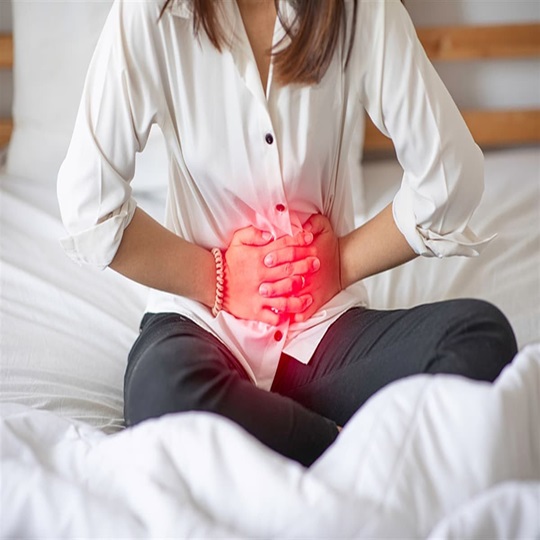What are Rectocele and Enterocele?
What is Rectocele?
Rectocele and Enterocele | Rectocele is the protrusion of the anterior wall of the rectum towards the posterior wall of the vagina. Patients often state that they have difficulty evacuating stool from the rectum and experience constipation.
The vagina and rectum can be thought of as two tubes that run parallel to each other and share a common muscle wall between them; there is a tissue called the “rectovaginal septum” that protects the anatomy here like a hammock between the posterior wall of the vagina and the anterior wall of the rectum. Rectocele occurs due to a defect in the rectovaginal septum. Difficult vaginal delivery, trauma with vacuum or forceps during vaginal delivery, tears and episiotomy incision during delivery, history of constipation, gynecological and rectal surgeries such as hysterectomy can cause a defect in this area and cause rectocele to develop in the future.
Rectocele and Enterocele | Most of the time, patients do not have any complaints, but in severe rectocele, a feeling of swelling and fullness in the vagina, pressure in the vagina and pelvis, difficulty defecating, chronic constipation, rectal pain, the need to defecate frequently, the need to press on the back wall of the vagina to defecate, pain during intercourse, and a feeling of fullness in the vagina can be observed.
Rectocele can be easily diagnosed by a doctor who is familiar with pelvic floor anatomy with a simple gynecological examination. However, additional imaging methods such as defecography may be requested to exclude its severity or other pathologies that may accompany it.
The first goal in the treatment of rectocele is to prevent it from getting worse. For this purpose; a diet rich in fibrin, consuming plenty of fluids, avoiding excessive straining, pelvic floor exercises such as Kegel exercises, pelvic floor physiotherapy, using stool softening supplements, and hormone replacement therapy will be beneficial.
Rectocele and Enterocele | Surgery will be useful in the treatment of rectocele where non-surgical methods are not useful and which will worsen the quality of life. The aim of the surgery is to repair the defective rectovaginal septum. Rectocele treatment can be easily performed by a gynecologist who is familiar with pelvic floor anatomy and surgery. Since pelvic floor defects can often be accompanied by pathologies such as urinary incontinence and bladder prolapse (cystocele), all defects can be repaired in a single session by a gynecologist who is familiar with urogynecology. In some highly complicated cases, a colorectal surgeon and urologist may also need to accompany the operation.
Rectocele and Enterocele | It is very important to follow your doctor’s recommendations, use your medications and not neglect your check-ups in order to increase the success of the surgery and prevent rectocele from recurring after surgery.
What is Enterocele?
Enterocele is a condition in which the intestines separate or shift from their normal place in the abdominal cavity. This condition causes the intestines to move more than normal within the peritoneum. It usually occurs when the intestines slide into the pelvic cavity or between other organs.
Enterocele can be congenital or develop later. Congenital ones are usually caused by weak or missing abdominal muscles. Enterocele that develops later can occur as a result of trauma, surgical interventions or other intra-abdominal problems.
Enterocele is often asymptomatic and is noticed incidentally during an examination or imaging test. However, in some cases, symptoms related to intestinal prolapse may occur. These symptoms may include abdominal pain, bloating, constipation or diarrhea.
Rectocele and Enterocele | Vaginal enterocele is recognized by the bulging of the intestines on the posterior vaginal wall due to a defect in the rectovaginal septum in the upper part of the posterior vaginal wall. In these patients, a pitting can be observed in the posterior upper vaginal part due to defecation. This pitting can cause air accumulation here, and vaginal gas leakage during sports or sexual intercourse.
Rectocele and Enterocele | Treatment is usually surgical. During surgery, the intestines are placed in their normal positions and the abdominal wall is strengthened if necessary. Untreated enterocele conditions can lead to serious intestinal obstruction or circulatory problems, so it is important to treat them when diagnosed.
Rectocele and Enterocele | A detailed evaluation of the patient before surgery is very important. Since vaginal enterocele can also be accompanied by rectocele and cystocele, it is important to have all anatomical defects corrected by an experienced physician.
Abdominal pain or discomfort: Displacement of the intestines can cause pain or discomfort in the abdominal area. This pain usually increases after sitting or standing for a long time.
Bloating: The displacement of the intestines from their normal positions can cause bloating in the abdominal area. Bloating can usually become apparent later in the day or after eating.
Constipation or Diarrhea: Bowel prolapse can affect bowel movements and therefore cause constipation or diarrhea. Since these symptoms can be caused by many factors that affect the normal function of the bowel, it can be difficult to make a definitive diagnosis based solely on the presence of descent.
Rectocele and Enterocele | Diagnosis is usually made through physical examination, imaging tests, and in some cases, endoscopic examinations. The patient’s medical history evaluates the symptoms and signs, and one or more imaging tests (for example, ultrasound, computed tomography, or magnetic resonance imaging) are usually ordered to confirm the symptoms. In some cases, endoscopic examinations may also be required to confirm bowel prolapse and rule out other bowel problems.
Rectocele and Enterocele | If left untreated, it can lead to serious complications, so it is important to consult Assoc. Prof. Dr. Esra ÖZBAŞLI when symptoms are noticed. Treatment usually involves surgery, but in some cases, medication or lifestyle changes may also be recommended.







